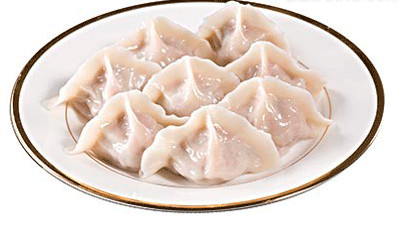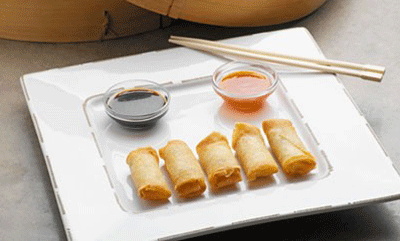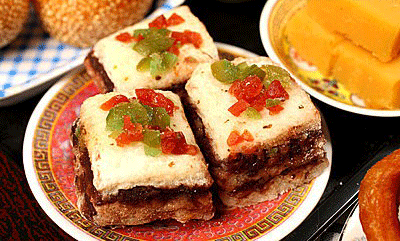Chinese New Year Foods are very important to Chinese people. All family members come together to eat at this time. Chinese New Year foods are not only delicious but it is traditional to eat certain foods over this festival. Chinese Dumplings, Fish, Spring Rolls, Nian Gao are usually seen as delicious and eaten at this time.
Chinese Dumplings look like silver ingots. Legend has it that the more dumplings you eat during New Year celebration, more money you can make in the New Year. Almost all Chinese people can make dumplings, first mix the dough, second make the dough into wrappers by a rolling pin, third fill the wrappers with pork, beef, vegetable, fish or anything else can be used as stuffing.
In Chinese, Fish sounds like “save more”. Chinese People always like save more money at the end of year because they think if they save more, they can make more in the next year. In some areas, fish is included, but not eaten completely (and the remainder is stored overnight), as the Chinese phrase “may there be surpluses every year”sounds the same as “may there be fish every year.”
People like Spring Roll because they are nutritious and delicious. Spring Rolls contain pork and vegetable. They can be easily taken on picnics. They get their name because they are traditionally eaten during Chinese New Year Celebration.
Southern Chinese eat niangao (New Year cake made of glutinous rice flour) on this occasion, because as a homophone, niangao means “higher and higher, one year after another.” The first five days after the Spring Festival are a good time for relatives, friends, and classmates as well as colleagues to exchange greetings, gifts and chat leisurely. In Chinese people’s mind, the higher you are, the more prosperous your business is. Main ingredients of Nian Gao are sticky rice, sugar, Chestnuts, Chinese date and lotus leaves.
Mandarin oranges are the most popular and most abundant fruit during Chinese New Year – jin ju translation: golden tangerine/orange or kam in Cantonese. Also, the name gik in Teochew dialect is a homophone of “luck” or “fortune”.







